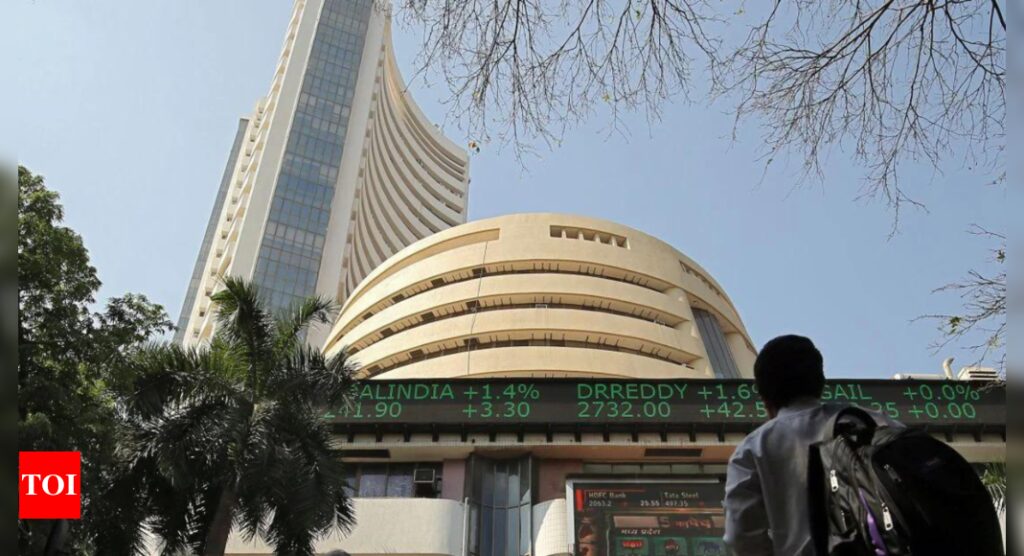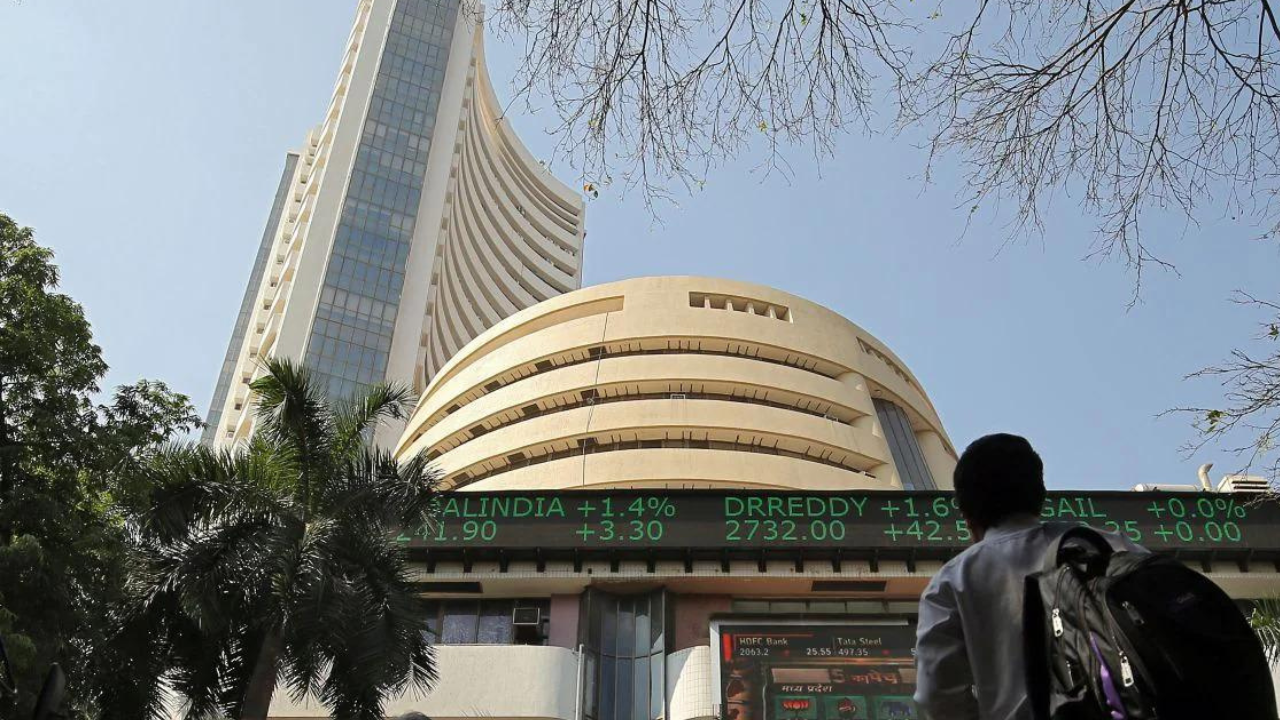[ad_1]
NEW DELHI: Driven primarily by higher crude prices and rising global interest rates, both sensex and Nifty reversed early morning gains on Thursday and witnessed a sharp fall. The information technology and consumer sectors mainly led the market decline.
The BSE benchmark sensex plunged 610 points down to close at 65,508 while Nifty fell 193 points to end at 19,524.
Here are the main reasons why sensex and Nifty declined today:
Higher oil price
Oil continued its upward trajectory on Thursday, reaching a fresh one-year high and edging closer to the coveted $100-a-barrel mark. This surge was driven by concerns surrounding increasing demand for oil and diminishing supplies. Meanwhile, expectations of another interest rate hike in the United States bolstered the dollar’s position, resulting in a mixed performance for equities.
The uncertainty deepened with the news that the troubled Chinese developer, Evergrande, had halted trading in its Hong Kong-listed shares. This development followed a cautious lead from Wall Street, where investors remained on edge due to speculations about further Federal Reserve policy tightening.
Crude oil prices posed a particular challenge for India, the world’s third-largest oil importer. The Indian economy is more susceptible to higher oil prices as the country is highly depended on import of crude to meet its energy demands.
Inflation fears
Concerns over inflation are expected to persist as oil prices remain elevated, potentially leading the Reserve Bank of India (RBI) to maintain its ongoing interest rate pause for an extended period. This situation could dash hopes of reduced Equated Monthly Installments (EMIs).
According to DK Joshi, the chief economist at Crisil, “If the continued and sustained rise in crude oil prices persists, it may impact the overall consumer inflation rate directly through factors such as higher fuel costs and indirectly through increased expenses in production and transportation.”
High US Treasury yields
The global equity markets have been under pressure due to rising US Treasury yields and a stronger dollar, fueled by concerns that interest rates will stay elevated for an extended period, following the Federal Reserve’s adoption of a more hawkish stance earlier in the month.
Selling by FIIs
The foreign institutional investors(FIIs) were net sellers in September. They have sold for Rs 21,640 crore in September so far.
Profit-booking
VK Vijayakumar, serving as the chief investment strategist at Geojit Financial Services, emphasizes the need for investor caution at this juncture. He recommends a prudent approach of profit booking in mid-and small-cap stocks, which have experienced significant increases driven by optimism and aggressive purchasing. Vijayakumar suggests that seeking safety in large-cap stocks, particularly in sectors such as banking/financials, capital goods, and automobiles, could be a wise strategy.
The BSE benchmark sensex plunged 610 points down to close at 65,508 while Nifty fell 193 points to end at 19,524.
Here are the main reasons why sensex and Nifty declined today:
Higher oil price
Oil continued its upward trajectory on Thursday, reaching a fresh one-year high and edging closer to the coveted $100-a-barrel mark. This surge was driven by concerns surrounding increasing demand for oil and diminishing supplies. Meanwhile, expectations of another interest rate hike in the United States bolstered the dollar’s position, resulting in a mixed performance for equities.
The uncertainty deepened with the news that the troubled Chinese developer, Evergrande, had halted trading in its Hong Kong-listed shares. This development followed a cautious lead from Wall Street, where investors remained on edge due to speculations about further Federal Reserve policy tightening.
Crude oil prices posed a particular challenge for India, the world’s third-largest oil importer. The Indian economy is more susceptible to higher oil prices as the country is highly depended on import of crude to meet its energy demands.
Inflation fears
Concerns over inflation are expected to persist as oil prices remain elevated, potentially leading the Reserve Bank of India (RBI) to maintain its ongoing interest rate pause for an extended period. This situation could dash hopes of reduced Equated Monthly Installments (EMIs).
According to DK Joshi, the chief economist at Crisil, “If the continued and sustained rise in crude oil prices persists, it may impact the overall consumer inflation rate directly through factors such as higher fuel costs and indirectly through increased expenses in production and transportation.”
High US Treasury yields
The global equity markets have been under pressure due to rising US Treasury yields and a stronger dollar, fueled by concerns that interest rates will stay elevated for an extended period, following the Federal Reserve’s adoption of a more hawkish stance earlier in the month.
Selling by FIIs
The foreign institutional investors(FIIs) were net sellers in September. They have sold for Rs 21,640 crore in September so far.
Profit-booking
VK Vijayakumar, serving as the chief investment strategist at Geojit Financial Services, emphasizes the need for investor caution at this juncture. He recommends a prudent approach of profit booking in mid-and small-cap stocks, which have experienced significant increases driven by optimism and aggressive purchasing. Vijayakumar suggests that seeking safety in large-cap stocks, particularly in sectors such as banking/financials, capital goods, and automobiles, could be a wise strategy.
[ad_2]
Source link











More Stories
We can’t wait to face India in the final: Pat Cummins | Cricket News
Railways plans 3,000 additional trains in next 4-5 years to minimise number of waitlisted tickets | India News
Faridabad: Man dies after ‘falling from hotel room window’ while partying with friends